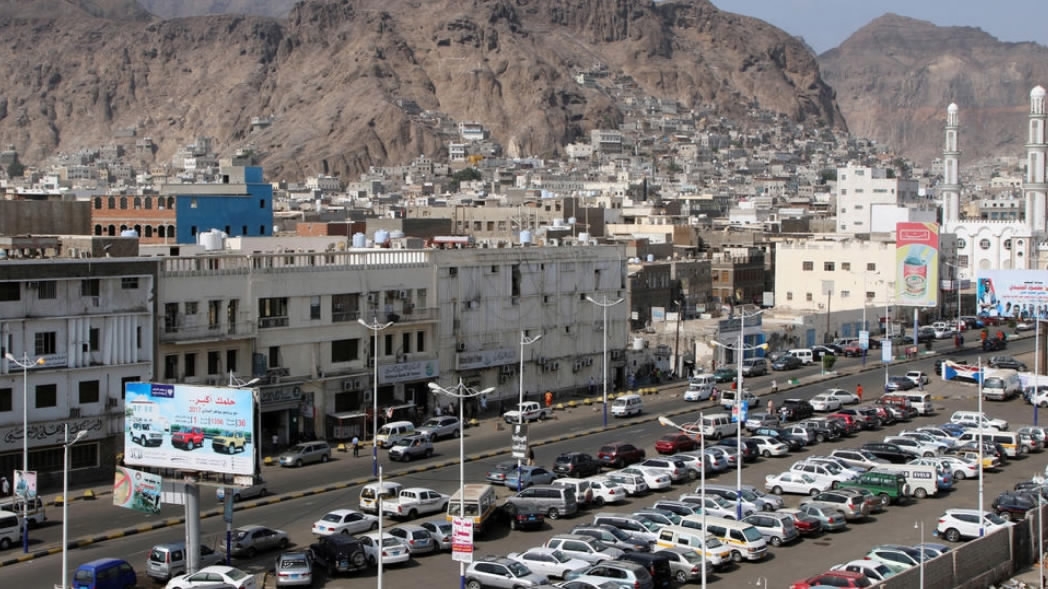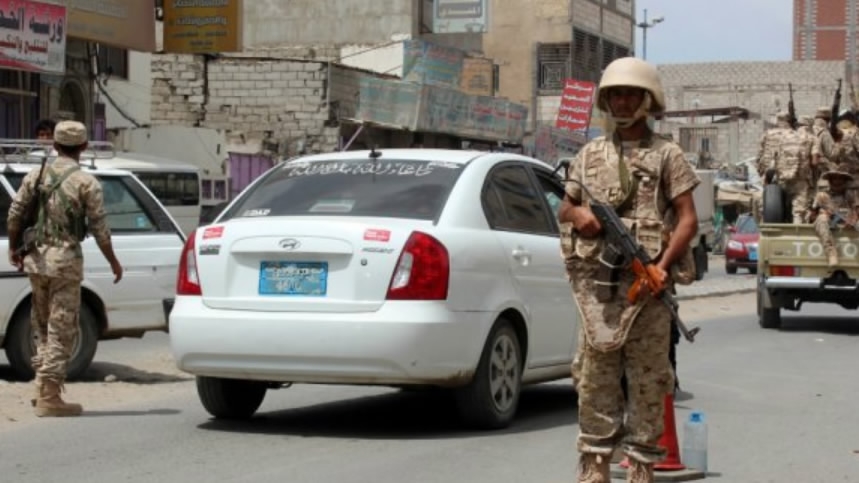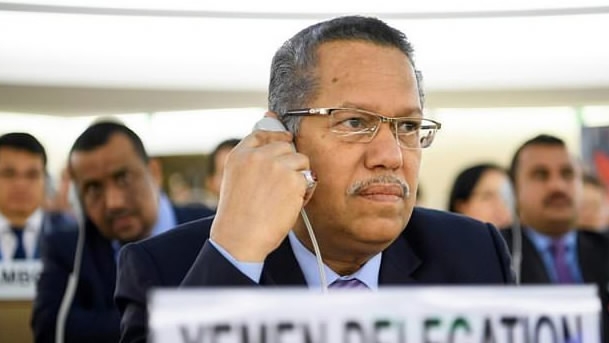
Politics
18:43, 28-Jan-2018
Separatists clash with government forces in Yemen’s Aden
CGTN

Yemeni government forces clashed with separatists in the southern port city of Aden on Sunday.
An Associated Press journalist heard heavy gunfire in the Khor Maksar district, while thick black smoke rose in the sky after an airstrike.
Yemen's Prime Minister, Ahmed bin Dagher, on Sunday accused southern separatists of attempting a coup in the interim capital of Aden after they took over the government headquarters.
The premier called on the Saudi-led coalition fighting Iran-backed Huthi rebels to intervene, hours after fierce clashes erupted between military units loyal to the government of President Abedrabbo Mansour Hadi and separatist security forces.

Loyalist forces stand guard on a main road in the Mansoura residential district of Yemen's second largest city of Aden. /AFP file picture
Loyalist forces stand guard on a main road in the Mansoura residential district of Yemen's second largest city of Aden. /AFP file picture
Witnesses, speaking on condition of anonymity because they feared reprisal, said residents were fleeing the area. Schools and universities were shut down and students were told to stay home.
President Abed Rabbo Mansour Hadi's forces, which have been at war with Houthi fighters since March 2015, were deployed across the city to prevent protests by southerners who want to bring down his government and separate from the Houthi-dominated north.
The protests are being led by Aidarous al-Zubaidi, a former Aden governor backed by the United Arab Emirates. The UAE is a key member of the Saudi-led coalition allied with Hadi's government, but has had tense relations with the president.
The UAE has trained armed forces, known as the Security Belt, who do not answer to Hadi's government.
On Saturday, the coalition issued a statement calling for "self-restraint" and described the protests as "popular demands to fix government flaws."
Aden, the seat of Hadi's government, has seen a sharp deterioration in services amid accusations of corruption and wasting public funds. Hadi supporters blame the coalition, saying it has failed to fulfill promises to rebuild Aden while barring the president, his sons and top commanders from returning to the country.

Yemeni Prime Minister Ahmed bin Dagher attends a conference to raise funds for war-ravaged Yemen at the Unites Nations Office in Geneva on April 25, 2017. /AFP Photo
Yemeni Prime Minister Ahmed bin Dagher attends a conference to raise funds for war-ravaged Yemen at the Unites Nations Office in Geneva on April 25, 2017. /AFP Photo
The tug-of-war between the UAE and Hadi has fractured the coalition and contributed to the nearly three-year stalemate with the Houthis, who control the capital Sanaa and much of northern Yemen. The war has killed more than 10,000 people and displaced two million. The UN says it is the world's worst humanitarian crisis.
Northern and southern Yemen were unified in 1990. Southerners have long advocated greater autonomy or outright secession, complaining of domination by the north. But not all separatists have joined forces with al-Zubaidi, and many fear a return of the civil war that raged in South Yemen from 1986 until unification.
"We won't allow a repeat of the painful past in Aden and we will not allow disturbances," Prime Minister Ahmed Obaid Bin Daghar warned on his Twitter. "The government won't be the reason behind it."
(Top image: View of the southern port city of Aden. /Reuters Photo)
7527km
Source(s): AP

SITEMAP
Copyright © 2018 CGTN. Beijing ICP prepared NO.16065310-3
Copyright © 2018 CGTN. Beijing ICP prepared NO.16065310-3